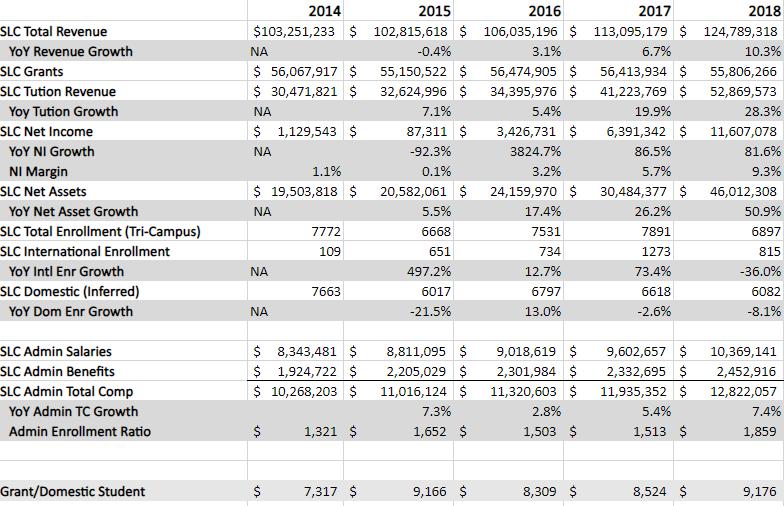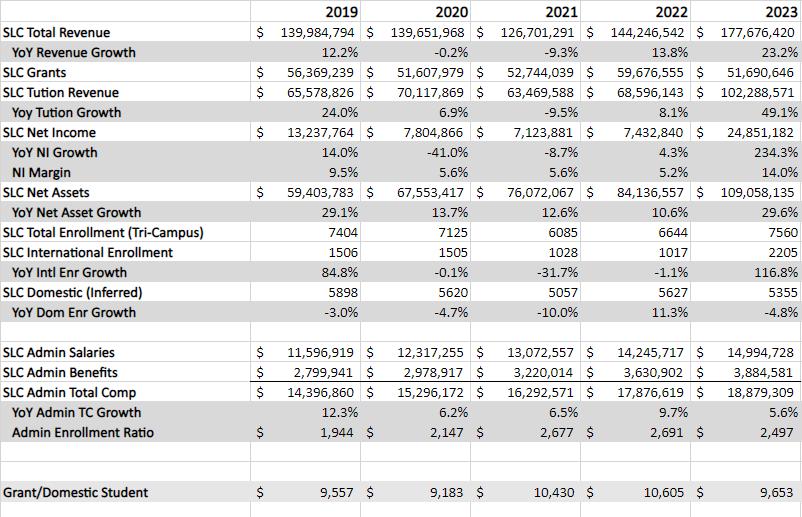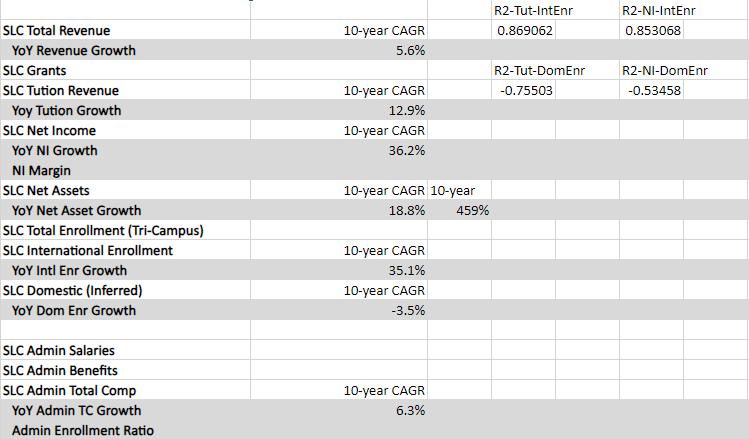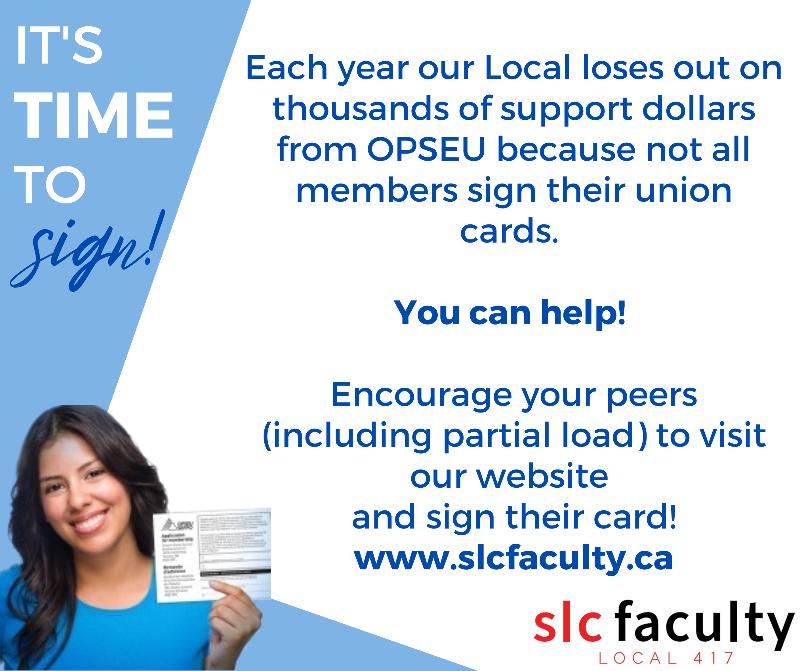An examination of internationalization at SLC


Halloween Prize Draw!
GET INVOLVED

An examination of internationalization at SLC


Halloween Prize Draw!
GET INVOLVED
CAAT Tales is a newsletter for our local, by our local, intended to inform as well as positively build solidarity through common interests.
Each issue will contain regularly featured themes as well as special ‘calls for submission’. So many of you do amazing things outside of the college, from arts and photography, to community involvement and hobbies, and we want to hear from you!
Don’t have time to write an article? That’s okay! Let us do the work. Contact your Comms team to set up a virtual meeting. Maybe there is a co-worker who has some interesting hobbies? Let us know who and we can reach out to them.
There are lots of other ways to get involved
Share favourite books or podcasts, recipes, jokes, or articles of interest. Are you looking to connect with peers related to a specific topic? We can include that as well.
This is YOUR newsletter. What will you share with us?

Your Communications Team:
Christina Chrysler
Curtis Runions

SLC Local 417 is comprised of counsellors and faculty (partial load and full-time) from all three campuses of St. Lawrence College. Your Local Executive Committee (LEC) supports and represents members in a variety of ways but is only as strong as the membership Engagement in the union can look different for everyone. For some that may be joining committees, attending educationals, or helping with union initiatives. For others, engagement means reading the newsletters and following along on social media. Whatever your comfort level, there is a place for you in Local 417
A General Membership Meetings are held in the autumn and winter (September and February). An Annual Membership Meeting is held in the spring (May). It is imperative that members attend these meetings to vote on, or learn about, important matters impacting the Local such as finances and collective bargaining issues. Meetings are announced 30 days in advance via the email address you have provided us (not college email), and social media. Regular union information is distributed weekly in our Friday Digest and less frequent issues of CAAT Tales
If you are interested in learning more about what your Local, CAAT-A, and OPSEU have to offer, reach out to a union steward.
I remember a simpler time--do you? A time when missing garbage bins and frankly outrageous course outlines were my biggest problems. A time of innocence, it seems to me now.
About a year ago, I wrote in CAAT-Tales that despite everything--the long-lingering effects of the pandemic, overwhelmed and underprepared students, international students struggling to find housing and working 40+ hours per week, empty hallways and empty classrooms, and my new role as union president (eek!)--I felt a glimmer of hope
I am trying to remember why I felt that way.
Too many classrooms are still empty Too many offices as well Where are you? I miss all of you so much and I wish you would come back to work. I still haven't met some of you. I would like to be your colleague, have coffee, complain about timetables, share teaching ideas, support each other, gossip. It's difficult to gossip alone. And I am not putting any of my gossip in writing, thank you very much
If you are avoiding campus because it doesn't feel good, I know. I found coming back to campus last fall very difficult It did not feel good You know what it felt like? It felt like when someone you love breaks up with you and your heart is broken, but you do the difficult work of getting over them. You come through the other side wounded but healing. The scar is fading. And then your ex says they want you back. But you can't go back because you worked so hard to get over them and you ' re a different person now
That's what last fall felt like.
What does this fall feel like? I think Christina Chrysler captured things well in a recent Friday Digest--"like a toddler with a bowl of spaghetti -- the college is a mess. "

This was not a "Whoops, we shouldn't do that again" moment. This year, things seem broken.
I have been with the college for 20 years, and every September, it is like we have never done this before. Remember the time classes began the very day the college reopened after the winter break and nothing was ready? Did the person who made that decision think that elves slid down on moonbeams to do the scheduling and enrolment? Remember the year there were 8-hour-long lineups at academic offices? Why did that happen? Remember when we didn't have Blackboard and students didn't have email for the first 6 weeks of classes? I believe that was at the same time the college was trying out a fancy new idea to solve our space problem-hybrid classes.
Remember when...fill in the blanks yourself. All of us have our tales of start-up woe.

This year was different This year things did not seem merely chaotic or disorganized or rushed This year was not the result of "trying something new " with unforeseen results This was not a "Whoops, we shouldn't do that again" moment. This year, things seem broken.
I am not going to say I am optimistic, not right now, maybe not ever, but I do think the college is fixable. If I didn't believe that, I wouldn't still be here.

(OPSEU Communications)
Commemoration is an important part of reconciliation and redressing past harms. So is truthtelling. On the National Day for Truth and Reconciliation, we must all create space for both.

On this day, we stand with the survivors of residential schools and their loved ones; acknowledge the intergenerational trauma that has been inflicted upon Indigenous communities as a result of children never making it back home; and we renew our commitment to taking action towards justice.
After hundreds of years of colonizers working to eradicate Indigenous communities – and the colonialism that still exists today – there is great power in bearing witness to the lived experiences of Indigenous people; saying, ‘I see you, I hear you, and I stand with you. ’
But reconciliation also requires more than words of acknowledgement – it requires constructive action To build a stronger, more just Ontario for all, no one can be left behind We can’t move the bar of progress forward if we don’t build power collectively.
It’s why we are working to dismantle systemic racism within all our union structures – because we recognize that white supremacy is embedded in how we have done things for decades and we must make an active, conscious effort to change that.
We must build power in the work we do by organizing for high participation from ALL workers. And we must continue to fight for access to clean water, justice for Missing and Murdered Indigenous women and children, Indigenous peoples’ rights to self-governance, and reconciliation.
OPSEU/SEFPO continues to stand in solidarity with labour leaders, families and First Nations communities in Manitoba and across Canada to demand action from the Manitoba government, the federal government and the City of Winnipeg in the search for three Indigenous women who are believed to be buried at the Prairie Green and Brady Road landfills The lives of Indigenous women and girls must not be ignored

We stand in solidarity with the Land Back movement for Indigenous sovereignty, and we must also fight to protect Indigenous land from mining – land that the Ford government is freely allowing mining companies to stake claims on without gaining consent from the Indigenous people who live on it.
This week, OPSEU/SEFPO was proud to join five First Nations from Northern Ontario and more than 6,000 community members and activists in the March for the Land rally, calling on Premier Ford to end the unwanted mining activity on their territories.
We are all up against a Conservative government whose interests lie solely in the highest bidder, and we will not let Ontario’s public services or protected lands be sold off.
Those fights are all of ours
We have a long way to go to achieve justice and reconciliation, but let’s walk this path together, in love and solidarity.
Miigwetch.
In solidarity, JP and Laurie
Internationalization has been a hot topic at St. Lawrence College for some time now. Most often, the conversations have centered around accommodating foreign learners and maximizing their opportunities for success in the classroom. Very seldom has the question been asked of why we are pursuing ever increasing internationalization. A close look at the college’s financial reports over the past 10 years yields potential answers
Ten years ago in the 2013-2014 academic year, there were 109 international students enrolled across all three of SLC’s campuses. This number would continue to grow at roughly 35% per year for the next decade, with an enrollment of 2,205 in 2022-2023. Despite having added more than 2000 international students, total enrollment has stayed stable, as domestic student levels steadily declined Tellingly, SLC’s tuition revenues have skyrocketed during this period, from about $30 million in 2013-2014 to more than $102 million in 2022-2023, all while overall enrollment has remained stable and domestic enrollment has declined. Clearly then, this increase in revenues is directly attributable to our international student tuition fees.
This dramatic increase has been a financial windfall for the college. From a net asset position of $19 5 million in 2014, the college has expanded its wealth to a staggering $109 million reported in the last fiscal year, an increase of 459% over the decade. Similarly, the college’s annual net income has increased from a little over $1 million in 2013-2014 to an eye-popping $24.8 million in 2022-2023! The college’s net income margin has commensurately increased over the decade from about 1%, what one would expect for a non-profit institution, to an average of 6%. These increases in excess income and accumulated wealth are directly the result of increased revenue from international student tuition

If the college has been doing so well financially, then what has it been spending all this money on? For starters, the surplus revenues from international students have meant that the province has not needed to increase its level of funding in any significant way The college has consistently received about the same amount each year for grants and reimbursements. More troubling still, the administration payroll has very nearly doubled over the last decade, with total compensation growing from $10.3 million in 2013-2014 to $18.9 million last fiscal year. This expansion, which certainly reflects both salary growth and new managerial headcount, has occurred in an environment of stable overall enrollment; so, the same number of students but twice the spend on managers It should be uncontroversial then to say that the interests of the parties charged with the governance of the college have become self-serving in the veritable tsunami of foreign money flooding our institution.
Where do we go from here? Evidently, the college’s plan is to increase international enrollment even further In SLC’s Strategic Mandate Agreement with the province, they state a target of 3,145 international students for the 2023-2024 academic year They are very likely on track to achieve this number, as my own Computer Systems Technician program has had its enrollment double from 60 students last year to 125 this September, with most of the growth representing foreign learners. We will also run our first Winter intake for the program this coming January. As I write this in late September of 2023, political strife with India could put the achievement of these targets at risk; but moreover, it could spell financial disaster for the college if those revenue figures were to precipitously drop After a decade in the racket, we ’ ve been left with nothing but a house of cards.





From racism, broken treaties, and cultural pillaging, to the value of Indigenous lives and the importance of Indigenous literature, this collection reveals facts about Indigenous life in Canada that are both devastating and enlightening. Truth Telling also demonstrates the myths underlying Canadian history and the human cost of colonialism, showing how it continues to underpin modern social institutions in Canada.
Passionate and uncompromising, Michelle Good affirms that meaningful and substantive reconciliation hinges on recognition of Indigenous self-determination, the return of lands, and a just redistribution of the wealth that has been taken from those lands without regard for Indigenous peoples.

Unreconciled: Family, Truth, and Indigenous Resistance

Jesse Wente
Part memoir and part manifesto, Unreconciled is a stirring call to arms to put truth over the flawed concept of reconciliation, and to build a new, respectful relationship between the nation of Canada and Indigenous peoples.
Wente explores and exposes the lies that Canada tells itself, unravels "the two founding nations" myth, and insists that the notion of "reconciliation" is not a realistic path forward. Peace between First Nations and the state of Canada can't be recovered through reconciliation--because no such relationship ever existed.
SLCFaculty Good Reads is a way of sharing non-academic reading recommendations. Do you have a favourite book to share? Send it to christina chrysler@slcfaculty ca to be included in our next issue!

All members of Local 417 were invited to participate in the fall General Membership Meeting on Thursday, September 28. Meeting virtually via Zoom, the Local met quorum at time of order with a total of 36 members in attendance.
Local 417 President, Christina Decarie, presented her report- briefing members on current issues within the college and actions being taken by the Local Executive Committee (LEC) She also addressed member concerns related to start-up and scheduling. Her full report can be found HERE.
The ‘hot topic’ of the evening was the motion brought forward by Local 417 Treasurer, Karen Weisbaum, proposing an increase in Local levy payments. The motion passed with two minor amendments. The levy will be revisited at the next GMM in February Members are strongly encouraged to attend and vote. The full Treasurer’s report can be found HERE.
The floor was opened for questions, new business, and discussion. The GMM adjourned at 8:38pm.
Members vote to increase levy from $20- $30 (full-time),$10-$15 (partial load) per pay effective immediately.
The levy will be revisited in February at the next GMM. Any member wishing to decrease, increase, or maintain the levy must attend the next GMM to vote.
Pre-Bargaining has begun. In coming months members will have an opportunity to voice their priorities for bargaining. There will also be an opportunity to represent the Local on the Bargaining Advisory Committee. If you think you would be interested in this, contact a steward Accurate and updated pay grids have not been released. These will be shared with membership as soon as they are complete Back-pay is still being processed for some contract faculty.
Members are encouraged to ask for clarification on their payment calculation. Expect considerable delay in response to this request due to volume of work currently being done in the Finance department.
Local 417 calls for interest
Local 417 is currently seeking members for the following: finance committee
tri-campus social committee comms committee contributions various support roles
upcoming: Bargaining advisory committee

Apply now for OPSEU/SEFPO Women’s Conference – Dec 1-3
The OPSEU/SEFPO Provincial Women’s Committee (PWC) invites you to submit your application to attend the 2023 OPSEU/SEFPO Women’s Conference.
The deadline is 5pm on October 11, 2023.
The conference takes place Dec. 1-3,2023, at the Sheraton Centre in downtown Toronto. This event will be in person. In addition to welcoming previous conference participants, we would like to extend a special invitation to those who have not attended in the past. We welcome all members who identify as woman. Don’t miss this opportunity to network, learn, and be uplifted!
The theme for the 2023 OPSEU/SEFPO Women’s Conference is “Let’s Get Louder.” It will look at gender equality and the strength and resilience of women. Participants will gain an in-depth understanding of the numerous ways that women contribute to all aspects of society, including reproductive rights and the economy
Learn more by visiting the OPSEU website.
On October 22, 2022, the Ontario government announced Bill 26, Strengthening PostSecondary Institutions and Students Act, 2022, a bill aimed at strengthening rules to combat sexual misconduct between employees and students These new rules came into effect on July 1, 2023.
Bill 26 addresses 3 key points: It defines what sexual misconduct is, explains discipline for employees who commit sexual misconduct, and defines re-employment for employees whose employment has been terminated due to sexual misconduct.

Bill 26 defines “sexual misconduct” as meaning, in relation to a student of an institution:
A. physical sexual relations with the student, touching of a sexual nature of the student or behaviour or remarks of a sexual nature toward the student by an employee of the institution where,
i. the act constitutes an offence under the Criminal Code of Canada,
ii. the act infringes the right of the student to be free from sexual solicitation or advance under the Ontario Human Rights Code, or
iii the act constitutes sexual misconduct as defined by the institution’s employee sexual misconduct policy or contravenes the policy or any other policy, rule or other requirement of the institution regarding sexual relations between employees or students, or
B. any conduct by an employee of the institution that infringes the right of the student to be free from reprisal or threat of reprisal for the rejection of a sexual solicitation or advance under the Ontario Human Rights Code
Bill 26 provides that if an employee of an institution commits an act of sexual misconduct toward a student, the institution may discharge or discipline the employee for that act. Bill 26 also provides that in such circumstances:
o the discharge or disciplinary measure will be deemed to be for just cause for all purposes,
o the employee will not be entitled to any notice of termination or termination pay or any other compensation or restitution as a result of the discharge or disciplinary measure, and
o despite subsection 48(17) of the Labour Relations Act, 1995 and subsection 14(17) of the Colleges Collective Bargaining Act, 2008, and despite any provision of a collective agreement or employment contract specifying a penalty for the infraction, no arbitrator, arbitration board or other adjudicator will be permitted to substitute any other penalty for the discharge or disciplinary measure imposed by the institution.
This effectively limits employees’ right to appeal a discharge or other disciplinary measure imposed by the institution in response to sexual misconduct.

Besides giving institutions the final say on the matter of discipline and discharge for sexual misconduct, Bill 26 states that employees who have committed an act of sexual misconduct toward a student and who have accordingly been discharged or resigned cannot subsequently be re-employed by the institution.
Furthermore, Bill 26 specifies that if an institution determines that it has re-hired an employee contrary to this prohibition on re-employment, it must discharge the employee and the amendments on discharge or discipline for sexual misconduct discussed above will apply to the discharge.
Note: The above summarized information was borrowed from this website. The complete reading of Bill 26 can be found here
According to Bill 26, all post-secondary institutions are required to create and enforce a sexual misconduct policy by July 1, 2023
OPSEU Local 417 contacted Human Resources and were told that St. Lawrence College held consultation across various committees regarding this act and had CET approve a new policy effective July 1, 2023. The next step will be to provide training to all employees to promote understanding and obligations related to Bill 26
*At the time of this publication, HR has committed to meeting with members of the LEC to discuss further. More information will be shared as it is received.
What are you listening to? Do you have a podcast of your own? Share your favourites by sending them to christina.chrysler@slcfaculty.ca to be included in our Spring issue!


Host: Kaniehti:io Horn
Words connect us. Words hurt us. Indigenous histories have been twisted by centuries of colonization.
Host Kaniehti:io Horn brings us together to decolonize our minds–one word, one concept, one story at a time.
LISTEN NOW


Open house time again!
Participating in Open House events continues to be voluntary In the past, Local 417 has discourage participation unless members are being compensated as outlined in the CA. Full-time faculty and counsellors should be receiving time in lieu. Contract members should be issued additional pay.

The current VPA has made it clear that participants should be compensated. If you choose to participate in this voluntary event, please make sure that your manager has agreed in writing to your compensation

There appears to be a lack of consistency across schools and departments in how sick days are applied for medical appointments If you are attending a medical appointment, having a medical procedure, or are ill, you may use your sick days. If you are absent for more than 3 days, you will be required to produce a doctor’s note. You do not have to use lieu time or ‘personal’ days.

KN95 masks are still available!
Stewards on each campus have KN95 masks These masks were purchased by Local 417 for members during the pandemic for personal use If you would like masks, please reach out to a steward.

President
Christina Decarie, christina.decarie@slcfaculty.ca
Chief Steward
Gillian Axten, gillian.axten@slcfaculty.ca
Treasurer
Karen Weisbaum, karen.weisbaum@slcfaculty.ca
Secretary
Deanna Cole-Benjamin, deanna.cole-benjamin@slcfaculty.ca
Communications Officer
Christina Chrysler, christina.chrysler@slcfaculty.ca
Sara Craig (B), sara.craig@slcfaculty.ca
Megan Bailey (K), megan.bailey@slcfaculty.ca
Curtis Runions (K), curtis.runions@slcfaculty.ca
Dan Somers (B), dan.somers@slcfaculty.ca
David White (C), david.white@slcfaculty.ca
Carla Kingston (C), carla.kingston@slcfaculty.ca
Jay Krawchuk (K), jay.krawchuk@slcfaculty.ca
Natalie Clark (C), natalie.clark@slcfaculty.ca

CAAT Tales is a newsletter for our local, by our local, intended to inform as well as build solidarity through common interests. Each issue will contain regularly featured themes as well as special ‘calls for submission’. So many of you do amazing things outside of the college, from arts and photography, to community involvement and hobbies, we want to hear from you!
What will you share with us?
CONTACT: Christina Chrysler Curtis Runions
